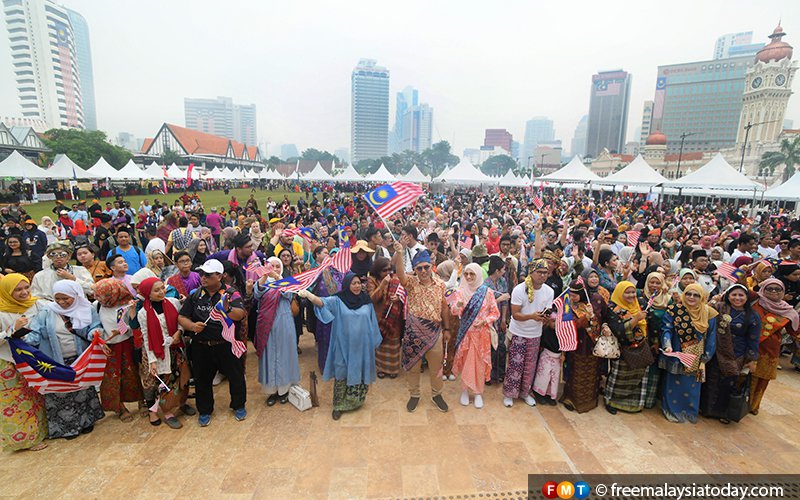Social contract talk a non-starter, says political scientist

A political scientist has dismissed talk about a social contract between the Malaysian races as a non-starter, saying no such document exists.
(FMT) – Speaking to FMT, Chandra Muzaffar said people discussing the alleged contract were likely referring to the agreement forged by the defunct Alliance coalition of Umno, MCA, and MIC.
In 1955, two years before Malaya gained independence, the Alliance formed the government after a sweeping victory in the federal council election.
The Reid Commission, which was set up by the British and Malayan governments to finalise the constitution, sought the views of the people and these included a memorandum from the Alliance.
“That memorandum addressed issues which would later be incorporated into the constitution,” Chandra said, adding that such issues included questions of citizenship and the special positions of the Malays, the Malay language, the Malay rulers and Islam.
He said the memorandum, which was the product of discussions among Alliance members, could be seen as representing the voice of the majority of Malayans because the coalition had won all but one of the 52 seats contested in the 1955 election.
“While the Alliance memorandum does not appear in the Federal Constitution, its ideas were incorporated into it.”
He said the term “social contract” was popularised in the 1980s by Abdullah Ahmad, who was then the MP for Kok Lanas.
Since the term was devoid of any legal status, he added, Malaysians should instead be referring to the Federal Constitution when discussing issues of citizenship, race, language, religion and the position of the Malay rulers.
“The constitution is a balanced document,” he said.
He recalled that the constitution was amended in 1971 to entrench provisions on the position of the rulers, the status of the Malay language and the right to study other languages, citizenship and the special position of the Malays, natives of Sabah and Sarawak and the legitimate interests of other communities.
“These were entrenched due to the unhealthy debates on them before the May 13 riots in 1969. It was aimed at reducing such unhealthy debates.”
Chandra said society would be “unworkable” if citizens were not committed to the constitution.
“Sadly, there some who engage in unhealthy debates by citing only parts of the constitution. For example, some will talk about Malay special rights but conveniently leave out the fact that the constitution also speaks about the legitimate interests of other communities.”
Referring to the controversial speech Zainal Kling made at the recent Malay Dignity Congress, he said the academic, in talking about citizenship, should have mentioned that the citizenship of non-Malays was beyond questioning.
Chandra also said nothing was preventing anyone from discussing the implementation of the entrenched provisions.
“As an example, while we cannot question the constitutional monarchy, it does not mean that rulers who commit crimes are immune from the law. And we can question whether Bumiputeras who buy million-ringgit homes should get Bumiputera discounts.”

